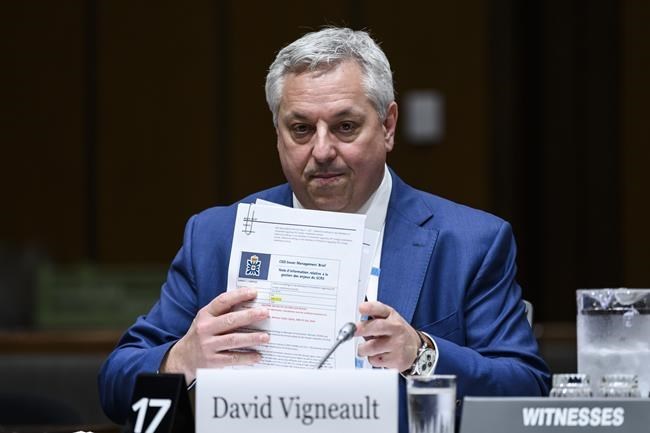OTTAWA — The sophisticated spy agencies of Canada's adversaries will be closely watching the federal inquiry into foreign interference for "every bit of information" they can exploit, a lawyer for the commission warned Monday.
With this in mind, a very large proportion of the material that has been given to the commission so far is "classified at the very highest levels," Gordon Cameron said during the opening day of hearings.
The inquiry's first five days of public hearings are focused on the preliminary point of how to handle the shroud of official secrecy around the controversial issue of foreign meddling.
The goal is to help identify ways to make information public, even though much of it comes from classified documents and sources.
The discussions on national security and confidentiality of information will help set the stage for the next public hearings, likely to take place at the end of March.
The March hearings are intended to delve into allegations of foreign interference by China, India, Russia and others in the 2019 and 2021 federal elections, with a report on these matters due May 3.
The inquiry will then turn to policy issues, looking at the ability of the government to detect, deter and counter foreign interference targeting Canada's democratic processes.
A final report is due by the end of the year.
Cameron said Monday that about 80 per cent of the documents received by the commission to date are classified and, of those, about 80 per cent are labelled as top secret or higher.
One reason is that the methods Canada uses to gather information about foreign interference can include human sources whose lives are at risk, or sensitive methods and technologies it "simply does not want our adversaries to know about," Cameron said.
"Among the most sophisticated intelligence agencies in the world will be analyzing every bit of information that comes out of this commission of inquiry," he said.
"These intelligence agencies have massive data banks of information, and have the ability to take the crumbs that come out of this inquiry and combine them with that information and draw conclusions that are very difficult to predict."
Officials are concerned these foreign agencies can use their advanced know-how to "extract every drop of value" from information disclosed during the inquiry process, Cameron said.
Even so, the commission is dedicated to making as much information public as possible within the limits of the law, he said.
Cameron appealed to the assembled counsel for participants in the inquiry for input — both this week and on an ongoing basis — "on how we can do that better."
In opening remarks Monday, commissioner Marie-Josée Hogue said getting to the truth requires her team to investigate, analyze and reflect as thoroughly as possible.
"My team and I will make every effort to get to the bottom of things and understand what the country has faced, and what it may still be facing, in terms of foreign interference."
Hogue, a Quebec Court of Appeal judge, told the hearing Monday she and the commission counsel are neutral and impartial. "We represent the public interest and our goal is to uncover the truth, whatever it may be."
Hogue said that since it will be up to her to draw conclusions from the evidence presented, "I want to stress that I have not yet seen that evidence."
Hogue said she had discussed relevant topics with commission counsel, as well as the way in which the hearings should be conducted.
"But I have chosen to participate neither in the meetings with potential witnesses, nor in the review of the documents obtained," she added. "I have chosen this approach to ensure that I have no preconceived ideas, and I will adhere to it throughout the commission's work."
On Tuesday, the inquiry is slated to hear from a panel of university professors on balancing national security and the public interest.
Former senior officials of the Canadian Security Intelligence Service are scheduled to appear Wednesday, followed Thursday by current intelligence personnel, including CSIS director David Vigneault.
The first week of hearings wraps up Friday with remarks from Dominic LeBlanc, minister of public safety, democratic institutions and intergovernmental affairs, as well as the closing submissions of participants.
This report by The Canadian Press was first published Jan. 29, 2024.
Jim Bronskill, The Canadian Press

